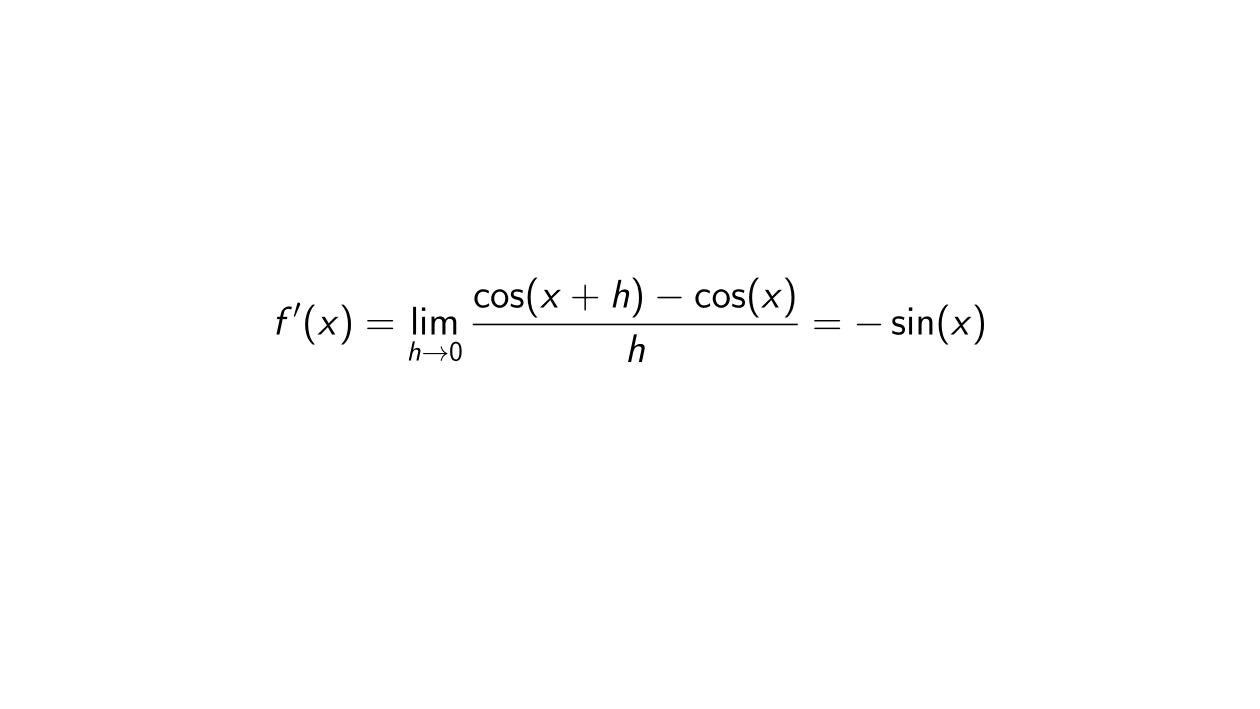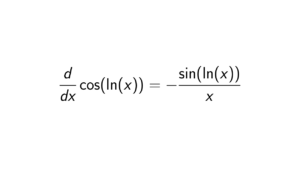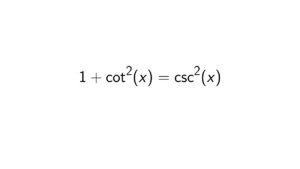Proof. Let f(x) = \cos(x). Then
\begin{align*}
f'(x) &= \lim_{h \rightarrow 0} \frac{f(x + h) - f(x)}{h} \\
&= \lim_{h \rightarrow 0} \frac{\cos(x + h) - \cos(x)}{h}
\end{align*}\begin{equation*}
\cos(x + y) = \cos(x)\cos(y) - \sin(x)\sin(y)
\end{equation*}\begin{equation*}
\cos(x) - \cos(y) = -2\sin(\frac{x + y}{2})\sin(\frac{x - y}{2})
\end{equation*}\begin{align*}
\lim_{h \rightarrow 0} \frac{-2\sin(\frac{2x + h}{2})\sin(\frac{h}{2})}{2} &= \lim_{h \rightarrow 0} -\sin(\frac{2x + h}{2}) \lim_{h \rightarrow 0} \frac{2\sin(\frac{h}{2})}{h} \\
&= \lim_{h \rightarrow 0} -\sin(\frac{2x + h}{2}) \lim_{h \rightarrow 0} \frac{\sin(\frac{h}{2})}{h/2}
\end{align*}\begin{align*}
\lim_{h \rightarrow 0} -\sin(\frac{2x + h}{2}) = -\sin(2x/2) = -\sin(x).
\end{align*}

